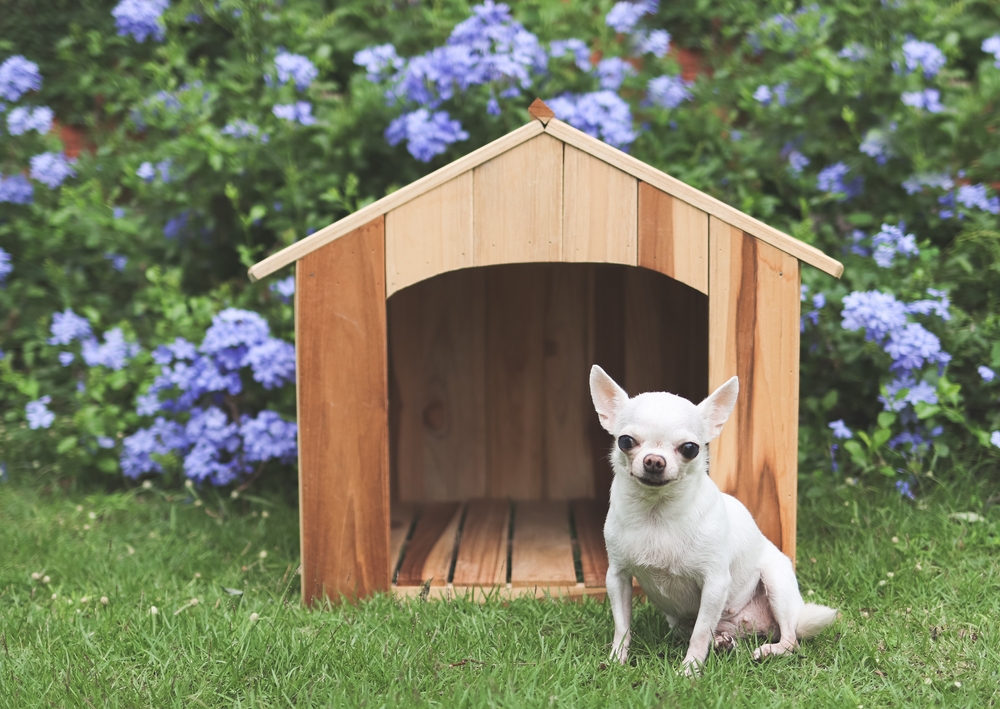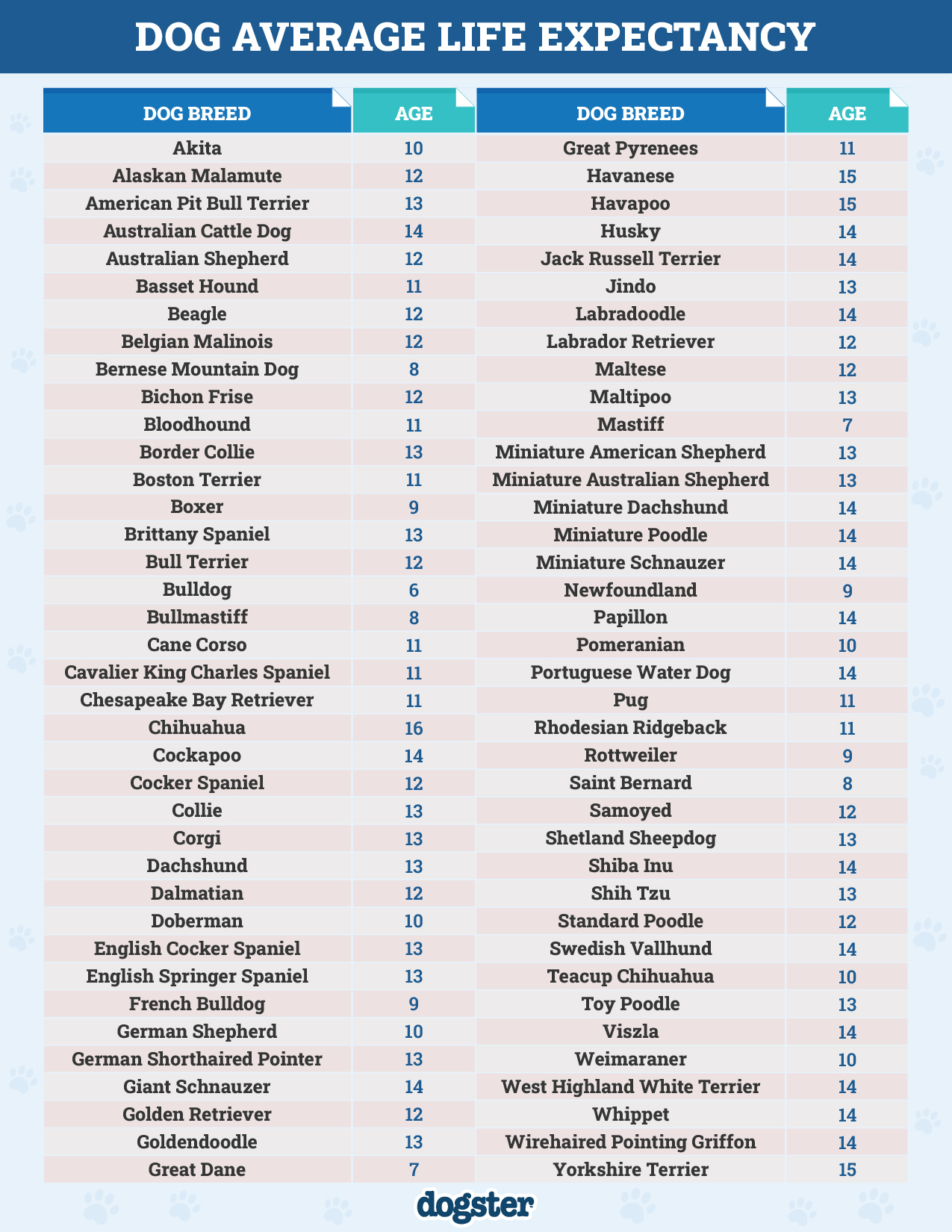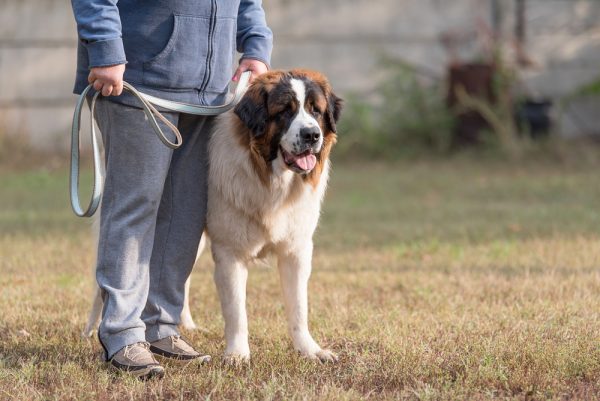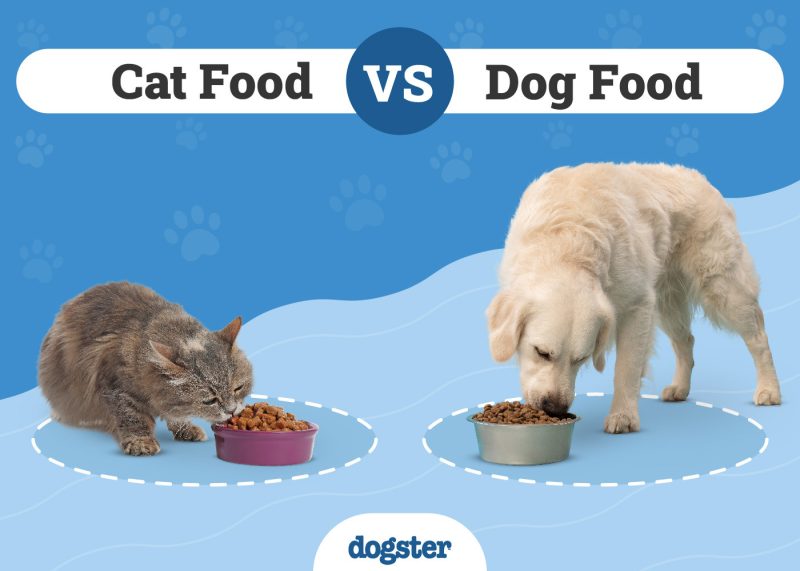In this article
View 3 More +The Chihuahua is one of the smallest dogs in the world. Their small size, coupled with their big personalities, has made them one of the most popular and well-known breeds in the United States and across the globe.
When committing to the lifelong companionship of a dog, it is essential to be aware of your chosen breed’s lifespan. Most small breeds have longer lifespans than larger breeds, but exactly how long do Chihuahuas live? On average, the Chihuahua’s lifespan is between 12 to 14 years, but they can live longer.
We’ll take a closer look into their average lifespan and the factors that determine it.

What is the Average Chihuahua Lifespan?
The average Chihuahua lifespan is 12 to 14 years of age but they have been known to live longer. One of the longest-lived dogs on record was a Chihuahua that lived for 20 years, 265 days. So, what exactly causes some Chihuahuas to live much longer than others? As with any living being, many factors play a role in longevity.


Why Do Some Chihuahuas Live Longer Than Others?
1. Nutrition
A Chihuahua’s diet and nutrition will directly impact their longevity. Chihuahuas should be fed a well-balanced, high-quality dog food formulated for small breeds. You want to avoid brands that contain unnecessary fillers, preservatives, or artificial flavors. The quantity and frequency of feedings should be based on their size, age, and activity level.
Backed up by studies completed by the AVMA1, it is highly recommended to avoid overfeeding dog food and dog treats and never offer any human foods such as leftover table scraps. This can lead to obesity, toxicosis, and many other health conditions that can shorten their lifespan. Discussing your Chihuahua’s nutrition goals with a veterinarian is essential.
If you need to speak with a vet but can't get to one, head over to PangoVet. It's our online service where you can talk to a vet online and get the personalized advice you need for your pet — all at an affordable price!

2. Environment and Conditions
Chihuahuas are very sensitive to temperatures and harsh weather conditions, particularly the cold. They should be kept as indoor dogs and monitored when let outside in any harsh weather conditions. Never leave your dog unattended in a hot car since the temperature can quickly rise and kill them.
Exposure to environmental toxins can cause serious health issues that can shorten their lifespan. Exposure can come through absorption or ingestion, so it is best to block their access to chemicals and ensure they are living in a clean environment.
A Chihuahua can easily fall victim to trauma. Their small size puts them at risk of being dropped, trapped in furniture, falling from heights, and being hit by cars. It’s vital to keep their fragility in mind and ensure your home and yard are safe from any risks. Keeping them in a secure, fenced-in yard and not allowing them to run loose or escape will help prevent those kinds of accidents.
3. Enclosure Size/Living Quarters/Housing
Living in cramped, uncomfortable conditions can affect a Chihuahua’s lifespan, or any dog for that matter. If your Chihuahua spends most of their time in a cage, they will likely have high levels of stress. Stress alone can lead to a series of health conditions. Thankfully, their small size makes them ideal pets for smaller houses and apartments.
4. Size

There is a well-known correlation between a dog’s size and lifespan. Smaller dogs tend to have much longer lifespans than their larger counterparts. Studies have concluded thus far that large dogs age more quickly than smaller dogs, thus causing them to die younger.
5. Sex
Gender-related longevity has not been as well researched in canines as it has in humans. It has been speculated that females may live slightly longer than males. However, the real evidence of extended longevity lies in the studies of altered dogs versus unaltered dogs. Spaying and neutering help stave off significant health issues later in life, such as infections and certain cancers.
6. Genes
Genetics plays a huge role in growth, health, and longevity. Chihuahuas, like any breed, are prone to some genetic health conditions that can affect their lifespan, such as:
- Luxating Patella
- Hypoglycemia
- Tracheal Collapse
- Dental Disease
- Hydrocephalus
- Obesity
- Bladder and Kidney Stones
- Heart Conditions
- Eye Problems
7. Breeding History
Reputable breeders have ethical practices and work to eliminate genetic health conditions from being passed down through the generations. A reputable Chihuahua breeder will thoroughly examine their dogs’ health and provide health guarantees.
Rescue Chihuahuas or those from backyard breeders or puppy mills may be more likely to have health issues related to genetic conditions due to unethical breeding practices. This does not make them any less worthy of a loving home and wonderful life.

8. Healthcare
- Routine Health Exams
Chihuahuas should have regular wellness exams with a veterinarian to ensure their health and well-being. Most regular checkups occur annually or semi-annually, at your veterinarian’s preference. Visiting the veterinarian for a regular checkup or to address any health concerns plays a role in lifespan.
- Vaccinations
Chihuahuas require vaccinations and follow-up booster shots to protect against potentially life-threatening diseases. There are vaccinations for parvovirus, leptospirosis, kennel cough (Bordetella bronchiseptica), canine influenza, distemper, and rabies. It’s essential to keep them up to date on these immunizations.
- Parasite Prevention
While parasites such as fleas can be an itchy nuisance, they can also cause some health issues if not eliminated. Internal parasites such as heartworms and intestinal worms can have even more damaging effects on any dog’s lifespan. It’s important to keep them up to date on parasite prevention.
- Spaying/Neutering
Chihuahuas that are spayed and neutered are more likely to live longer than those that remain unaltered. While surgery has its risks, they pale compared to the health conditions that can affect them later in life if left intact. Spaying and neutering help prevent infections and certain types of cancers. In addition, it also helps with behavioral issues.
- Dental Care
Most small breeds are predisposed to dental disease, and Chihuahua’s are no exception. Their tiny mouths breed a lot of bacteria, resulting in tartar buildup, and will turn to dental disease if proper care is not sought. Dental disease can result in severe health complications if not treated. Prevention is vital to keeping your Chihuahua at optimal dental health.

The 4 Life Stages of a Chihuahua
Puppy
The puppy stage begins at birth and lasts approximately 6 to 12 months. Since Chihuahuas are a small breed, they age more slowly than larger breeds that will exit puppyhood sooner. While most puppies will remain with their mother from 8 to 12 weeks, it is time to learn once they are placed in their new home.
Training from puppyhood is critical to having a well-rounded companion. This is an enjoyable and playful stage, but young Chihuahuas can be destructive due to teething, so keep that in mind.

Adolescent
The adolescent stage begins between 6 and 12 months of age and lasts until the age of 2. At this time, adolescents are typically at their adult size. They begin to reach sexual maturity between 6 and 9 months, which is typically when behavioral changes start to happen due to the related hormones.
Talk to your veterinarian about the best time to spay or neuter your Chihuahua to help prevent the unwanted behaviors of adolescence.
Adult
Adulthood is reached between 18 months and 2 years of age, but Chihuahuas are fully grown by 1 year. In the adult stage, they begin to calm down from adolescence but are still energetic.
Senior
A Chihuahua is considered a senior between the ages of 7 and 10 years, depending on your veterinarian’s declaration. Since Chihuahuas are longer-lived, they can take up to 10 years to be considered seniors.
At this stage, you will begin noticing graying around the muzzle, a slowing in their activity level, the need for more sleep, and the appearance of age-related health conditions.


How To Tell Your Chihuahua’s Age
Unless you acquired your Chihuahua from a breeder or an individual who is well aware of their history, you will have to estimate their age. Even if you are completely unaware of your dog’s birthdate, you can look at their teeth, eyes, coat, and behavior to get an approximate age.
While each dog is different, you can typically tell a senior by observing graying around the muzzle and visible eye conditions.
The teeth are your best bet for guessing age; here are some guidelines below:
- 8 Weeks of Age – By this time, your Chihuahua will have all their baby teeth.
- 7 Months of Age – All permanent teeth will have come in by 7 months of age and will appear white and clean.
- 1-2 Years – Teeth will become duller by 1 to 2 years of age, and the back teeth may even show some yellowing.
- 3-5 Years – All teeth will likely have some tartar buildup and signs of wear.
- 5-10 Years – If the Chihuahua’s teeth have never been cleaned, they will appear worn and begin to show signs of dental disease.
- 10-15 Years – By the senior years of 10 to 15 years or more, the dog’s teeth will be worn and show signs of severe tartar buildup and possible dental disease. Since dental issues are more common in small dogs, some teeth may even be missing.


Conclusion
While the average Chihuahua’s lifespan is 12 to 14 years, they have been known to live up to 20 years. Many factors determine the lifespan of a Chihuahua. Accidents and health issues can happen unexpectedly at any time during a Chihuahua’s life and may be entirely out of our control.
Owners need to be aware of all the factors that can affect their Chihuahuas’ longevity and do their part to ensure that their pups have the longest, happiest lives possible.
See Also:
- Chihuahua Dog Names
- Chihuahua Mixes (With Pictures)
- How Long Are Chihuahuas Pregnant? Our Vet Explains Pregnancy & Care Guide
Featured Image Credit: Annette Shaff, Shutterstock



















